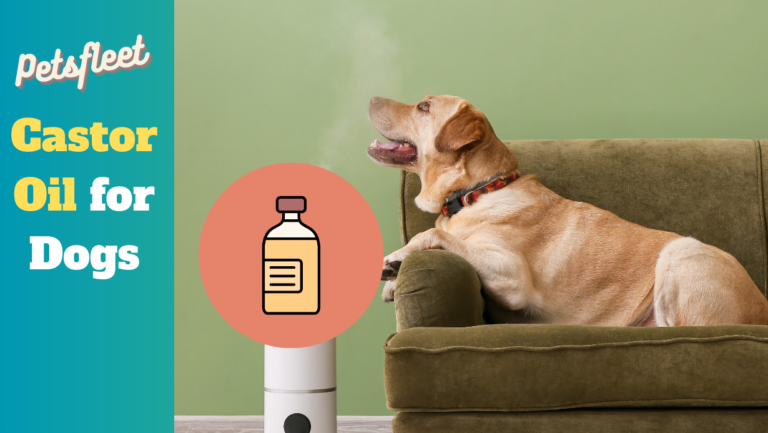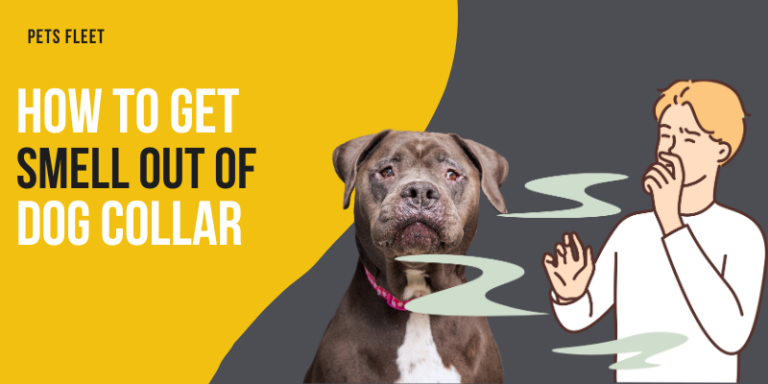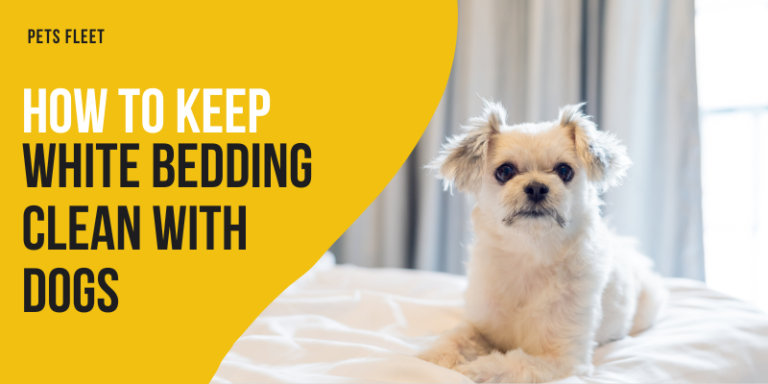How To Stop Dog From Destroying Bed – 5 Simple Steps

If you’ve found yourself caught in this furry whirlwind of bed destruction, take heart – you’re not alone, and there’s a light at the end of the tunnel.
To stop a dog from destroying a bed, provide appropriate chew toys, crate train, use positive reinforcement, and establish consistent rules and boundaries.
Here, we’ll explore how to stop dog from destroying bed and provide practical solutions to prevent such behavior.
How To Stop Dog From Destroying Bed – Step-By-Step Guide
Dogs can exhibit destructive behavior for various reasons, including boredom, anxiety, or lack of proper training. If your dog is destroying your bed, it’s essential to address this behavior promptly to prevent further damage and promote a harmonious living environment.
This step-by-step guide will help you understand why your dog might be destroying the bed and provide effective solutions to stop this behavior.
Step 1: Understand the Reasons Behind Bed Destruction
To effectively stop your dog from destroying their bed, it’s crucial to understand the underlying reasons for this behavior. Dogs may engage in destructive chewing, scratching, digging, or even urinating on their beds due to various factors such as boredom, anxiety, teething, territorial marking, or seeking attention.
Step 2: Provide Ample Exercise and Mental Stimulation
A tired dog is a happy dog! Regular exercise not only helps drain excess energy but also keeps your pup mentally stimulated. Take your furry friend for walks, play fetch in the park or engage in interactive games that challenge their mind. A physically and mentally satisfied dog will be less likely to resort to destructive behaviors.
Step 3: Opt for Durable and Chew-Resistant Beds
Investing in a durable and chew-resistant bed can make all the difference. Look for materials like ballistic nylon or thick canvas that can withstand sharp teeth and persistent scratching. Avoid beds with plush stuffing or easily torn fabrics that might tempt your pup’s destructive tendencies.
Step 4: Introduce Safe Chewing Alternatives
Redirecting your dog’s chewing instincts onto appropriate toys is essential. Provide a variety of chew toys made specifically for dogs – sturdy rubber ones are great options. Be sure to rotate these toys regularly so they remain engaging and novel.
Step 5: Utilize Positive Reinforcement Training Techniques
Positive reinforcement training is key when teaching your pooch what is acceptable behavior around their bed. Reward them with treats or praise when they exhibit good behavior like lying quietly on their bed without any destruction attempts.
Remember, patience is key throughout this process. Consistency and positive reinforcement go hand-in-hand when trying to change undesirable habits.
Why Do Dogs Destroy Their Beds?
Dogs are known for their mischievous behavior, and one common issue that many pet owners face is their furry friend destroying their bed. But why do dogs engage in this destructive behavior? There could be several reasons behind it.
Separation Anxiety
Dogs may destroy beds as a way to cope with the stress and loneliness of being left alone.
Boredom
Lack of mental stimulation and physical exercise can lead to destructive behavior as a form of entertainment.
Frustration
Inability to access desired things like attention, food, or toys might lead to bed destruction as an outlet for frustration.
Breed Traits
Some breeds are more prone to destructive behavior due to high energy levels or strong prey drive.
Unique Triggers
Understanding your dog’s specific triggers is important for effective problem-solving.
Understanding the underlying causes behind your dog’s destructive tendencies will allow you to implement the necessary strategies for preventing future incidents and promoting overall well-being for both you and your furry companion.
Why Do Dogs Scratch Their Beds?
It’s a common behavior that many dog owners find perplexing. However, there are several reasons why dogs scratch their beds.
Instinctual Comfort
- Dogs have an innate need to create a comfy sleeping spot.
- Scratching or rearranging bedding reflects their ancestral den-building behavior.
Boredom and Energy
- Lack of physical and mental stimulation can lead to bed scratching.
- Excess energy finds an outlet in this activity.
Territorial Marking
- Scratching leaves scent marks, signifying territory and dominance.
Medical Factors
- Allergies or skin issues might cause excessive scratching.
- Consult a vet if scratching persists to rule out health problems.
Understanding why dogs scratch their beds can help you address this behavior effectively. Whether it’s providing extra mental stimulation, ensuring proper exercise routine or addressing potential health concerns – finding the root cause will pave the way towards resolving this issue peacefully!
Why Do Dogs Dig In Their Beds?
One of the most perplexing behaviors that dog owners often encounter is when their furry friends start digging in their beds. So, why do dogs engage in this seemingly strange behavior? There are several possible reasons behind it.
Perplexing Behavior
Dogs digging in their beds can be puzzling for owners.
Instinctual Legacy
Digging is rooted in wild canines’ need to create secure dens for themselves and their young.
Ancestral Instinct
While not for survival, this primal instinct still influences domesticated dogs.
Boredom and Energy Release
Dogs may dig to relieve boredom or pent-up energy, much like humans fidget.
Entertainment and Relief
Digging serves as a form of entertainment and stress relief.
Temperature Adjustment
Dogs may dig to find cooler ground in hot weather or warmth in colder seasons.
Natural Temperature Control
Adjusting bedding regulates comfort according to weather.
Hunting Instincts
Certain breeds dig to simulate hunting for small creatures beneath their bedding.
Prey Drive
Digging behavior relates to strong hunting instincts in some breeds.
Anxiety and Coping
Dogs might dig due to anxiety or separation anxiety, providing stress relief.
Understanding why your dog digs in its bed is crucial if you want to address this behavior effectively. Once you identify the underlying cause—whether it’s instinctual habits, boredom relief, temperature regulation, hunting instincts or anxiety—you’ll be better equipped to provide appropriate solutions and prevent your pup from destroying its bed!
Why Do Dogs Pee On Their Beds?
There can be several reasons behind it.
Peeing on Bed Behavior
Dogs occasionally urinating on their owners’ beds can be frustrating.
Territorial Marking
Dogs use scent glands in paws to mark territory, especially unneutered/non-spayed dogs.
Urinating on the bed asserts ownership and dominance.
Anxiety and Stress
Dogs experience anxiety similar to humans. Marking behavior can be a coping mechanism for emotional stress. Changes in routine, new environments, or separation trigger this response.
Health Considerations
Health issues such as urinary tract infections or bladder stones can cause indoor accidents.
House Training Importance
Inadequate house training or inconsistent routines may contribute to the behavior.
Understanding why your dog is engaging in this behavior is crucial for addressing it effectively. Consulting with a veterinarian or professional trainer can provide guidance tailored to your specific situation.
What Can I Spray On Dog Bed To Stop Chewing?
There are several options available that can help discourage your furry friend from chewing on their bed.
- One popular choice is bitter apple spray, which has a strong taste that dogs find unpleasant. Simply spritzing this solution onto the areas of the bed they tend to target can often do the trick.
- Other option is using citrus-based sprays, as many dogs dislike the smell of citrus fruits. These sprays not only act as a deterrent but also leave behind a fresh scent.
- Some pet owners have had success with vinegar solutions or even hot sauce diluted with water. The idea here is that these substances have an unpleasant taste or smell for dogs, making them less likely to chew on their beds.
- When applying any type of spray, ensure that it won’t harm your dog or damage the fabric of their bed. Always read and follow the instructions provided by the manufacturer.
Remember, every dog is different and what works for one may not work for another. It may take some trial and error before finding the right spray that effectively stops your pup from destroying their beloved sleeping spot!
Conclusions
In conclusion, addressing a dog’s destructive behavior towards a bed requires a thoughtful and systematic approach.
By understanding the underlying reasons behind the behavior—whether it’s anxiety, boredom, territorial marking, health issues, or training gaps—owners can implement effective strategies.
Providing mental and physical stimulation, ensuring proper training, consulting a veterinarian, and seeking professional guidance when needed are all essential steps.
With patience, consistency, and a commitment to the well-being of your furry friend, you can successfully redirect their behavior and create a harmonious living environment for both you and your dog.
FAQs
How do I stop my dog from destroying things when left alone?
Provide engaging toys, crate train, gradually increase alone time, and consider professional help.
Should I punish my dog for destroying things?
No, punishment is not effective; it can worsen anxiety and harm your bond.
Do dogs remember destroying things?
Dogs have a limited sense of time; they might not associate destruction with past actions.
Why do dogs take your bed?
Seeking comfort, warmth, or your scent might prompt dogs to take your bed.
Why do dogs destroy things when left alone?
Dogs may destroy things due to anxiety, boredom, separation distress, or territorial behavior.



![Difference between Training Collars and Everyday Collars [Complete Guide]](https://petsfleet.com/wp-content/uploads/2023/09/Difference-between-Training-Collars-and-Everyday-Collars-Complete-Guide-768x384.png)


